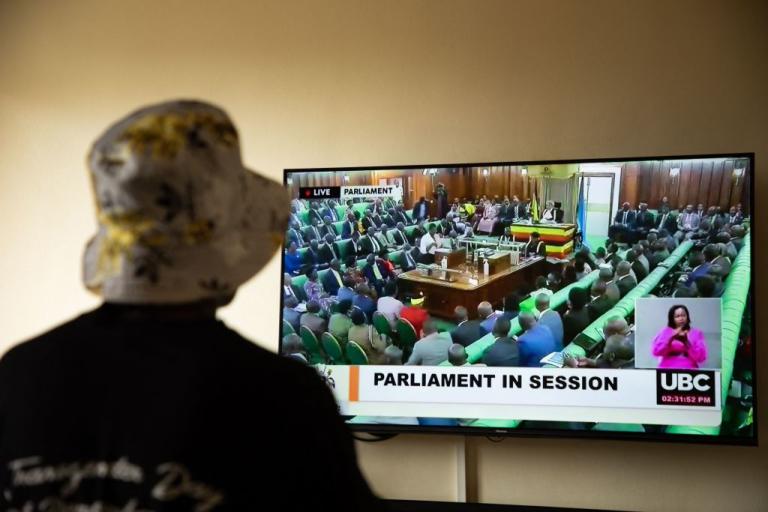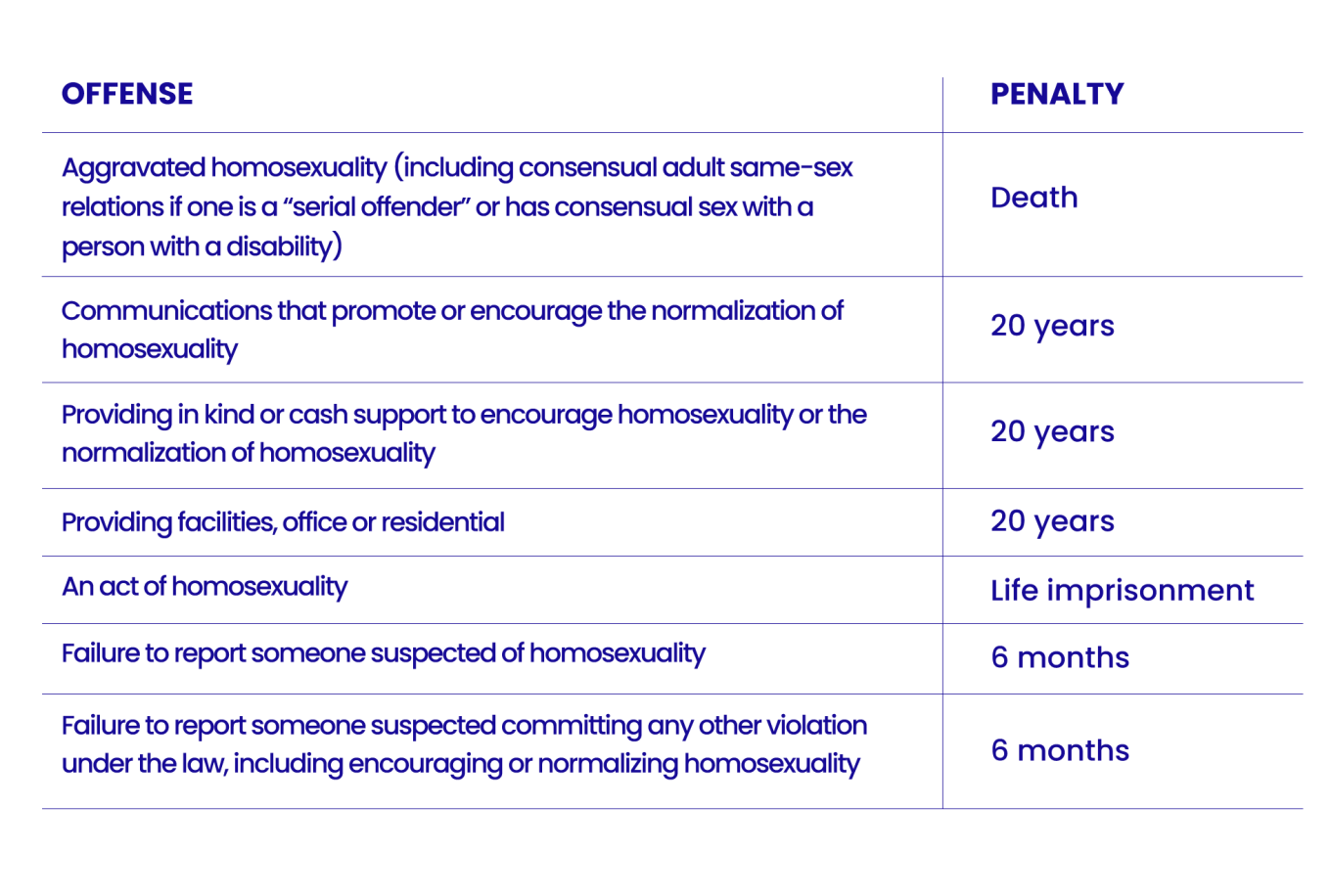
Insights
What Does Uganda’s Anti-Homosexuality Bill Mean for Humanitarians, Development Partners and the Private Sector?
Region(s)
TOPIC(s)
Type
Commentary
Author(s)
Publish Date
March 29, 2023
Share
Uganda’s Anti-Homosexuality Bill, passed in parliament on March 21, 2023, will be the world’s worst, most draconian anti-LGBTQ legislation, if enacted into law. President Museveni has 30 days to decide whether to assent to the law. Ugandan and international businesses, humanitarian organizations and development partners should use their influence to staunchly oppose the bill.
Enactment of the law would class Uganda alongside only six countries that shock the world’s conscience by prescribing the death penalty for consensual same-sex intimacy. While parliament removed a draft provision that criminalized “holding out as” a lesbian, gay, transgender or queer person, the version it passed effectively renders existence as an LGBTQ person in Uganda impossible: it will no longer be possible for queer people to rent homes or to access affirming health care services. But beyond its full-frontal attack on LGBTQ people, the law is unique in its breadth, potentially criminalizing large swaths of the Ugandan population, as well as foreigners residing in Uganda – regardless of their sexual orientation or gender identity.
The most far-reaching provision is Article 15, the “duty to report acts of homosexuality.” Under this provision, everyone in Uganda - regardless of nationality - faces six months in prison if they fail to report to the police any person of whom they have “a reasonable suspicion that a person has committed or intends to commit” either acts of homosexuality or any other offense under the law.

Medical practitioners, including those employed by foreign-funded development schemes such as PEPFAR, must report their patients, or face prison time. Parents must report their children. Teachers must report their students. Clergy members must report their parishioners. Refugee services must report queer asylum seekers. Employees of humanitarian organizations or multinational corporations must report their co-workers – knowing that in doing so, they could be subjecting them to life imprisonment or the death penalty, which is to be meted out as punishment for some consensual same-sex acts under Article 3 of the Bill. Open for Business, a coalition of global companies, pointed out, in a March 28 statement and letter to President Museveni that the bill would “put Ugandan employers in an untenable and unconscionable position regarding treatment of LGBTQ+ employees.”
What could ethical investment in Uganda’s health or education sector, or in private sector development, possibly look like under this law?
It gets worse.
Key Provisions of Uganda’s Anti-Homosexuality Bill, 2023

The law criminalizes, under Article 11, the “promotion” of homosexuality. Individuals who operate non-profit organizations, and development partners who fund health and human rights work in Uganda, are held personally criminally liable not only for “promoting” but also for “normalizing” homosexuality. Decades of progress in the HIV prevention sector hang in the balance, since best practices on tackling HIV by reducing stigma toward key populations, including men who have sex with men and trans people, will be illegal. The law prohibits anyone from encouraging homosexuality through “the use of a computer, information system, or the internet.” Online HIV prevention efforts that encourage same-sex couples to practice safer sex might be illegal; so would the action of an individual sending a congratulatory email message to friends abroad who are celebrating a same-sex marriage. A prohibition of providing “in-kind” support includes the distribution of lubricants or other products that may benefit LGBTQ people.
Many major international development and humanitarian organizations operating in Uganda, carrying out life-saving work in areas such as food insecurity and climate change, have robust equity and inclusion policies that refer to sexual orientation and gender identity. Their country directors could face up to 20 years in prison for operating organizations that “normalize” homosexuality. These organizations’ licenses could also be suspended or revoked.
The law further criminalizes landlords who rent premises to LGBTQ individuals: if they knowingly fail to evict tenants who are engaging in or “encouraging” homosexuality, they, too, face 20 years in prison. Hotels that rent rooms to same-sex couples, including major international hotel chains whose global policies prohibit discrimination, could be liable under this provision.
When the “promotion” provision is read in conjunction with the “duty to report” provision, everyone on Ugandan soil becomes a de facto spy for the state and must not only report persons engaged in same-sex acts; they must also report queer people’s allies, friends, and family members that “encourage” homosexuality, organizations that “normalize” homosexuality, and hotels and landlords that rent rooms to same-sex couples.
Far beyond simply banning same-sex acts, the law turns nearly everyone in Uganda into a potential criminal.
Development partners who support the Ugandan government in nearly any sector - governance, health, education, housing, livelihoods - should be aware of the heightened risk that their funds will be used to discriminate against and persecute LGBTQ people, including under Article 12, which implicates social and welfare officers in subjecting persons convicted under the law to forced conversion therapy practices, which cause incalculable harm.
Humanitarian organizations, development partners, and multinational corporations should not fall into the trap of believing that this odious law does not affect them, or that they will be able to conduct “business as usual” if the law is passed. They should vociferously oppose the law, which, if enacted, will compel their complicity in gross and unprecedented human rights violations.

Take Action
When you support our research, you support a growing global movement and celebrate LGBTIQ lives everywhere.
Donate Now